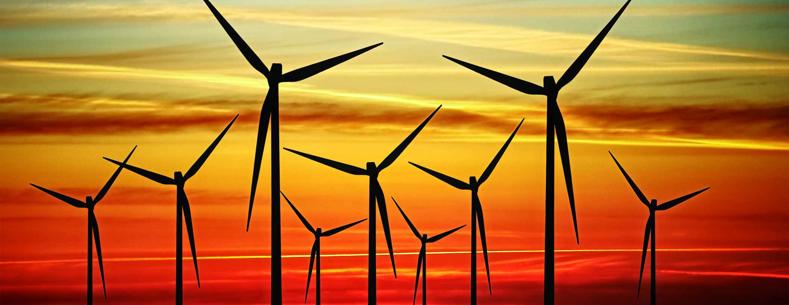The Welsh Government introduced the Infrastructure (Wales) Bill into the Senedd on 12 June 2023.
The Bill reforms how infrastructure is consented in Wales by establishing a unified process, known as an Infrastructure Consent (IC), for specific types of major infrastructure called Significant Infrastructure Projects (SIPs). These include energy, transport, waste, water and gas projects on land and in the sea around Wales (known as the ‘Welsh marine area’).
IC replaces existing statutory regimes and reduces the number of authorisations needed to construct and operate a SIP by incorporating them in a single consent.
Consenting for certain large infrastructure, mainly energy projects above devolved thresholds, remains reserved to the UK Government.
Introducing the Bill, the Minister for Climate Change, Julie James, said it was an important step towards the Welsh Government’s 2050 ‘net zero’ emissions target, and:
… ensures a transparent, and consistent, process which enables local communities to better understand and engage in decisions that affect them, whilst providing certainty in decision-making which is underpinned by clear policy.

The Welsh Government estimates the new process will reduce costs for developers, Local Planning Authorities (LPAs), statutory consultees and itself. It says costs to communities are not quantifiable because communities and their responses to particular projects vary.
Senedd Members discussed their initial thoughts on the Bill on 13 June 2023.
Property company Savills says a unified consenting process has potential to give Wales a competitive advantage over neighbouring administrations.
The Bill follows a 2018 consultation. You can read more on this in our previous article.
Most respondents to the consultation agreed with the principle of a unified consenting process, although many wanted more detail on how it would work in practice. Respondents said changes must ensure flexibility, a stronger role for communities and mustn’t be too complex or costly for applicants.
Next steps
The Bill now starts its journey through the Senedd’s legislative process. The Minister will appear before the Climate Change, Environment and Infrastructure Committee on 6 July 2023, before the Committee consults on the Bill over summer. Committee scrutiny starts in earnest in the autumn.
You can follow proceedings on the Committee’s webpages and Senedd TV.
Brief summary of the Bill
Part 1 of the Bill defines what a SIP is by listing infrastructure types and related qualifying thresholds and criteria. SIPs include:
- Energy
- electricity infrastructure;
- liquified natural gas facilities;
- gas reception facilities;
- hydraulic fracturing for oil and gas and coal gasification;
- open cast coal mining;
- Transport
- highways;
- railways;
- rail freight interchanges;
- harbour facilities;
- airports;
- Water
- dams and reservoirs;
- transfer of water resources;
- wastewater treatment plants;
- hazardous waste facilities; and
- radioactive waste geological disposal.
Part 1 also enables the Welsh Ministers to add, vary or remove projects to/from the list of SIPs.
Part 2 makes it a requirement to obtain IC for development which is or forms part of a SIP.
Where IC is required for development, various other consents and authorisations that would otherwise be needed, (e.g. planning permission) aren’t now necessary because they’re replaced by IC.
The Welsh Ministers may also specify a development that otherwise wouldn’t qualify, as a SIP, if they consider it to be of national significance.
Part 3 makes provision for:
- establishing a pre-application procedure, including consultation and publicity;
- how an application for IC is to be made to the Welsh Ministers, including a requirement for the applicant to provide a draft Infrastructure Consent Order; and
- the requirements for publicity and notification.
Part 3 also sets out procedures relating to the compulsory acquisition of land as part of an IC.
Part 4 sets out the processes and procedures for examining applications for IC.
This includes requiring the Welsh Ministers to appoint a person or a panel, known as the “examining authority”, to examine each application. This will be Planning and Environment Decisions Wales.
The examining authority must determine the appropriate procedure for examining the application. This can be through a local inquiry, hearing or in writing.
Part 5 contains provisions about deciding applications for IC. These include specifying who the decision-maker is in certain circumstances – the Welsh Ministers or the examining authority -, the timetable for deciding applications and what is to be done once a decision is made. The applicant must be notified of the decision to either make an Infrastructure Consent Order, or to refuse consent.
Part 6 contains provisions which relate to Infrastructure Consent Orders.
These include:
- requirements which may be included in an Infrastructure Consent Order and which would otherwise be subject to separate application and consenting procedures;
- purposes for which compulsory acquisition may be authorised;
- extinguishing of rights of way;
- overriding easements and other rights in land;
- operating generating stations;
- diverting watercourses;
- tolling highways;
- creating harbour authorities and related powers;
- discharging water authorised by the order;
- deemed consent under a Marine Licence;
- power to correct errors in decision documents; and
- the power to change or revoke infrastructure consent orders.
This part also makes provision for the duration of Infrastructure Consent Orders, legal challenges and blighted land.
Part 7 is about enforcing the terms of Infrastructure Consent Orders.
The LPA is responsible for enforcement on land. The Welsh Ministers have a power to appoint persons for the purposes of enforcement in the Welsh inshore region.
The methods of enforcement include offences relating to development without infrastructure consent, a breach of/failure to comply with the terms of an Infrastructure Consent Order, and the ability to serve notices about unauthorised development.
There are also powers for to enter land, obtain information, take steps required by a notice of unauthorised development, issue temporary stop notices and seek an injunction to restrain prohibited activity.
Part 8 provides for supplementary functions to enable the system created by the Bill to operate.
These include powers of entry to survey land, a requirement on the Welsh Ministers to maintain and publish a register of applications for infrastructure consent, applications received for pre-application services, and pre-applications services provided by the Welsh Ministers.
Part 9 contains general provisions.
These include the meaning of “development” for the purposes of the Bill, and procedures for giving notices and making regulations.
Schedule 1 sets out the ancillary provisions that can be made by an Infrastructure Consent Order.
Schedule 2 makes provision about compensation for changing or revoking an infrastructure consent order.
Schedule 3 sets out consequential amendments and repeals.
This article highlights the main features of the Bill only and isn’t intended to be exhaustive. We’ll publish a comprehensive Bill summary in due course. Refer to the Bill and its explanatory notes for full detail.
Article by Elfyn Henderson, Senedd Research, and Katie Wyatt, Legal Services, Welsh Parliament






